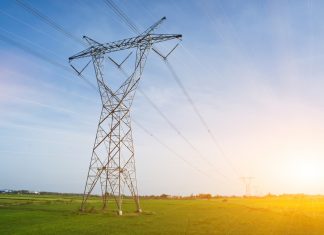Independent non-partisan think tank the Grattan Institute has warned average Victorian households can expect to pay more than $300 a year extra for gas from mid-2015.
The prediction comes as candidates in the 29 November state election take part in local group Coal and CSG Free Mirboo North’s gas policy forum in Mirboo North this Sunday, setting out their policies on the controversial topics of gas and coal exploration.
Grattan Institute this week released its report ‘Gas at the crossroads: Australia’s hard choice’, warning of increased gas prices across eastern Australia.
When the Gladstone Liquefied Natural Gas project goes online, expected to be in June next year and LNG is exported, the eastern Australian gas market will be exposed to the international market price.
The domestic market price for gas has been stable between $3 and $4 per gigajoule of energy for the past few years, but it is expected to move to $8 per gigajoule to satisfy Japan’s appetite for gas following its move away from nuclear power.
Despite the likely negative impact increased energy costs will have on manufacturing industry, including food processing, paper and packaging, explosives and fertilisers, the report rejects the notion of reserving a proportion of the nation’s gas reserves for domestic use, as is done in Western Australia.
The report says: “Reserving a percentage of Australia’s gas production for domestic use would be a form of protection. It would effectively tax gas producers in order to subsidise domestic gas users. It would effectively increase the costs of producing gas for export and thus reduce the development of Australian gas exports and reduce the incentive to develop further gas supplies.”
That conclusion has been welcomed by the Australian Petroleum Production and Exploration Association.
In a move likely to distress coal seam gas opponents, APPEA chief executive David Byers called on governments to urgently allow for exploration and production of natural gas in New South Wales and Victoria to secure supply and limit price rises.
“Natural gas is vital to millions of households, but also to the commercial, industrial and agricultural sectors that rely on natural gas for the manufacture of products such as chemicals, plastics, pharmaceuticals, fertilisers, paints, pesticides and cosmetics, and the production and processing of food and fibre,” he said.
“Bi-partisan support for natural gas production in Queensland has resulted in tens of thousands of jobs, regional investment and a $65 billion industry.”
Grattan Institute’s conclusions included scathing comment on the New South Wales and Victorian moratoriums on gas exploration, describing them as a poor substitute for action.
The report states “Victoria’s decision to extend its moratorium on fracking for coal seam gas to conventional gas exploration is bizarre”.
The report is highly critical of the state of the Australian east coast gas market describing it as a mess.
It also slams the coal seam gas producers for having failed to adequately respond to the legitimate concerns of landowners, local communities and environmentalists.
“Whatever technical claims the industry might have to safe and responsible behaviour, its failure to respect these concerns has made it easier for more extreme and overblown claims about the risks to environment and livelihoods to gain traction in local communities,” the report stated.
The report is also critical of the gas retailers which have so far failed to explain the imminent changes to customers.










